The United Arab Emirates (UAE) stands as a beacon of opportunity, offering a strategic gateway for businesses looking to establish a presence in the dynamic Middle Eastern market. With its strategic location, business-friendly policies, robust infrastructure, and a diverse economy, the UAE has emerged as a global hub for commerce and innovation.
Setting up a business in the UAE is a streamlined process, with various options available to cater to different business needs. From mainland companies enjoying unrestricted access to the local market to free zone entities benefitting from tax exemptions and 100% foreign ownership, entrepreneurs have the flexibility to choose the setup that best aligns with their objectives.
Moreover, the UAE's progressive regulatory environment, coupled with its strategic partnerships and investor-friendly initiatives, fosters an ecosystem conducive to business growth and prosperity. Whether you're venturing into trade, manufacturing, finance, technology, or any other sector, the UAE offers a supportive ecosystem and ample opportunities for success.


In the dynamic business landscape of the United Arab Emirates (UAE), navigating through regulatory requirements and bureaucratic procedures can be a daunting task. This is where PRO (Public Relations Officer) services come into play, offering invaluable support to businesses and individuals seeking to streamline their administrative processes.
PRO services in the UAE encompass a wide range of tasks, including document clearance, visa processing, government approvals, licensing, and more. Whether you're establishing a new business, renewing permits, or managing employee visas, PRO experts act as your trusted advisors, ensuring compliance with local regulations and expediting the process with efficiency and precision.
By outsourcing PRO services, businesses can save valuable time and resources, allowing them to focus on their core operations and strategic objectives. With their in-depth knowledge of local laws and procedures, PRO professionals navigate the complexities of the UAE's regulatory landscape seamlessly, minimizing delays and mitigating risks.
The Department of Economic Development (DED) is a vital government entity in the United Arab Emirates (UAE), responsible for regulating and promoting economic activity within the country. Established in each emirate, the DED plays a pivotal role in facilitating business growth, fostering entrepreneurship, and ensuring the overall economic well-being of the nation.
Business Registration and Licensing: The DED oversees the registration and licensing of businesses operating within its jurisdiction. It provides the necessary permits and approvals for various commercial activities, ensuring compliance with local laws and regulations.
Regulatory Oversight: The DED implements and enforces regulations governing business activities, including commercial laws, consumer protection measures, and industry-specific regulations. It monitors market dynamics and takes proactive measures to maintain fair competition and safeguard consumer interests.
Promotion of Investment: The DED works to attract local and foreign investment into the emirate by creating a conducive business environment. It offers incentives, support services, and infrastructure development initiatives to encourage investment across various sectors.

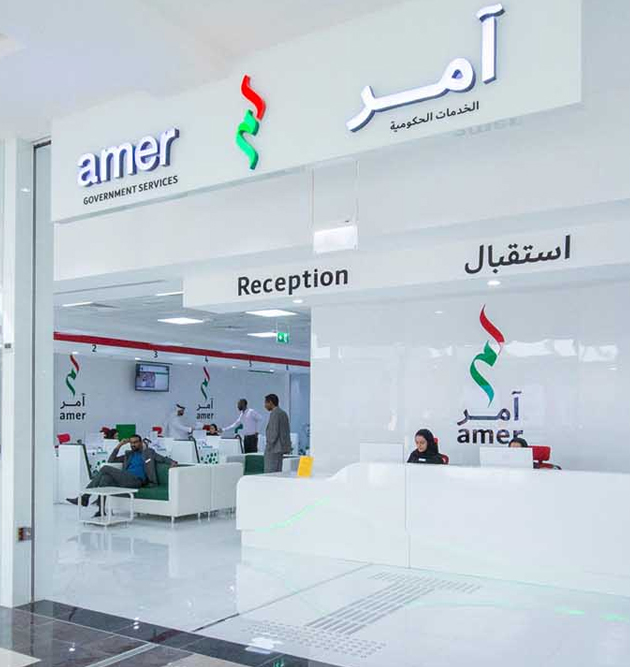
Amer, managed by the General Directorate of Residency and Foreigners Affairs, is the cornerstone of immigration services in the United Arab Emirates (UAE). It serves as a vital resource for individuals and businesses seeking to navigate the complexities of residency and visa procedures in the country.
Amer offers a wide range of services tailored to meet the diverse needs of residents, tourists, and expatriates. From visa applications and renewals to residency permits and entry permits, Amer provides efficient and streamlined solutions to ensure a hassle-free experience for all stakeholders.
With its user-friendly online portal and network of service centers across the UAE, Amer makes it convenient for individuals to access immigration services and stay compliant with regulations. Its dedicated team of professionals is committed to delivering prompt and personalized assistance, guiding applicants through every step of the process with professionalism and efficiency.
The Ministry of Labour, commonly known as Tasheel, is a fundamental entity in the United Arab Emirates (UAE), overseeing labor-related affairs and regulations. Tasheel serves as a centralized platform for employers and employees to access a wide range of services related to employment and labor rights.
Employment Contracts: Tasheel facilitates the issuance and attestation of employment contracts, ensuring that both employers and employees are aware of their rights and obligations under UAE labor laws.
Work Permits and Visas: Tasheel handles the processing of work permits and visas for foreign employees, ensuring compliance with immigration regulations and labor market needs.
Wage Protection System (WPS): Tasheel implements and monitors the Wage Protection System, which ensures that employers pay their employees accurately and on time, in accordance with UAE labor laws.
Labor Dispute Resolution: Tasheel provides mediation and dispute resolution services for labor disputes, aiming to achieve fair and amicable resolutions for both parties involved.
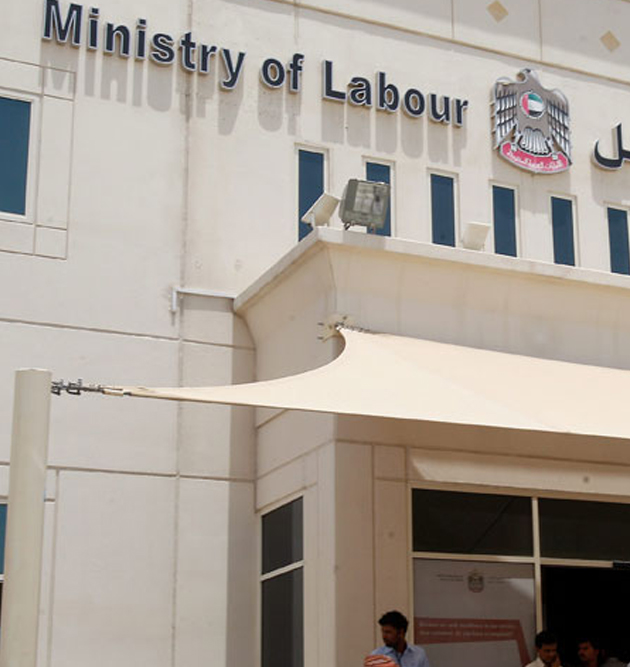
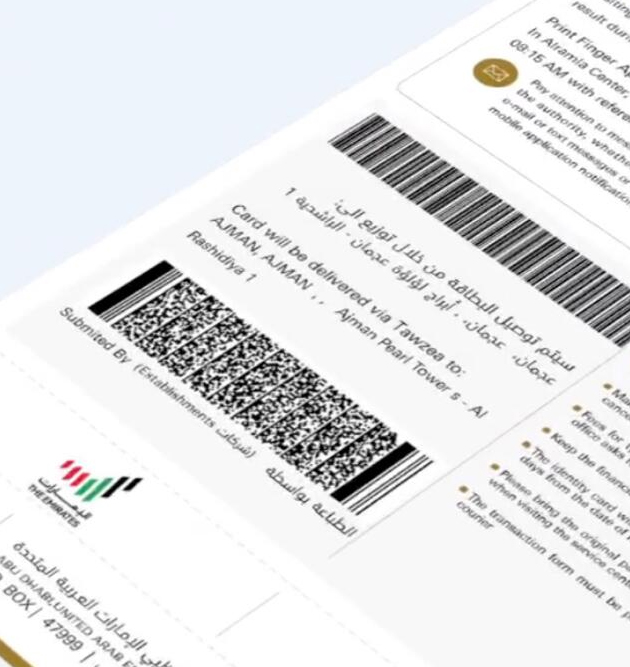
The Emirates ID application process is a crucial step for residents and citizens of the United Arab Emirates (UAE) to obtain their Emirates ID card, which serves as a national identification document.
Eligibility: Residents and citizens of the UAE are eligible to apply for an Emirates ID card.
Application Submission: The application process typically begins with the submission of the required documents and information. This can be done online through the official website of the Emirates Identity Authority (EIDA) or through authorized typing centers across the UAE.
Documentation: Applicants are required to submit various documents, including passport copies, visa copies, residency documents, and passport-sized photographs. The specific requirements may vary based on the applicant's nationality and residency status.
Biometric Data Collection: Upon submission of the application, applicants are usually required to visit an Emirates ID enrollment center to provide biometric data, including fingerprints and a digital photograph.
Processing Time: Once the application and biometric data are submitted, the Emirates ID card is typically processed within a specified timeframe. Applicants can track the status of their application online or through the EIDA mobile app.
The term "Medical Application" can refer to a variety of contexts within the healthcare sector, including mobile applications designed for health tracking, telemedicine platforms, electronic health record systems, and more.
Health Tracking Apps: These applications allow users to monitor various aspects of their health, such as physical activity, sleep patterns, nutrition, and vital signs. They often feature tools for setting health goals, tracking progress, and receiving personalized insights.
Telemedicine Platforms: Telemedicine apps enable patients to consult with healthcare providers remotely, using video conferencing, chat, or phone calls. Patients can receive medical advice, prescriptions, and referrals without the need for in-person visits to healthcare facilities.
Electronic Health Record (EHR) Systems: EHR applications digitize patient medical records, allowing healthcare providers to securely store, access, and share patient information electronically. EHR systems streamline administrative tasks, improve communication among healthcare teams, and enhance patient care coordination.


Insurance is a financial product designed to protect individuals, businesses, and organizations against the financial risks associated with unforeseen events or losses.
Life Insurance: Provides financial protection to beneficiaries in the event of the insured's death. It can also include investment components for building cash value over time.
Health Insurance: Covers medical expenses and healthcare services, including hospitalization, doctor visits, prescription drugs, and preventive care.
Property Insurance: Protects against damage or loss of property due to events like fire, theft, natural disasters, or accidents. This includes homeowners insurance, renters insurance, and commercial property insurance.
Auto Insurance: Covers damages to vehicles and liability for injuries or property damage resulting from accidents.
Liability Insurance: Protects individuals and businesses from legal liabilities arising from third-party claims, such as bodily injury or property damage.
Business Insurance: Provides coverage for various risks faced by businesses, including property damage, liability, business interruption, and employee-related risks.
The residence visa process in most countries typically involves several steps and requirements.
Eligibility and Sponsorship: In many countries, individuals seeking a residence visa must be sponsored by a qualified sponsor, such as an employer, family member, or educational institution. The sponsor is often responsible for initiating the visa application process and providing supporting documentation.
Documentation: Applicants are typically required to submit various documents as part of the visa application process. Common documents may include a valid passport, passport-sized photographs, proof of financial means, medical examination reports, police clearance certificates, and any other documents specified by the immigration authorities.
Application Submission: Once all required documents are gathered, the applicant or their sponsor submits the visa application to the appropriate immigration authority. This may be done online or through a visa application center or embassy/consulate.
Biometric Data Collection: In some cases, applicants may be required to provide biometric data, such as fingerprints and a digital photograph, as part of the visa application process. This typically involves visiting a designated biometric collection center.
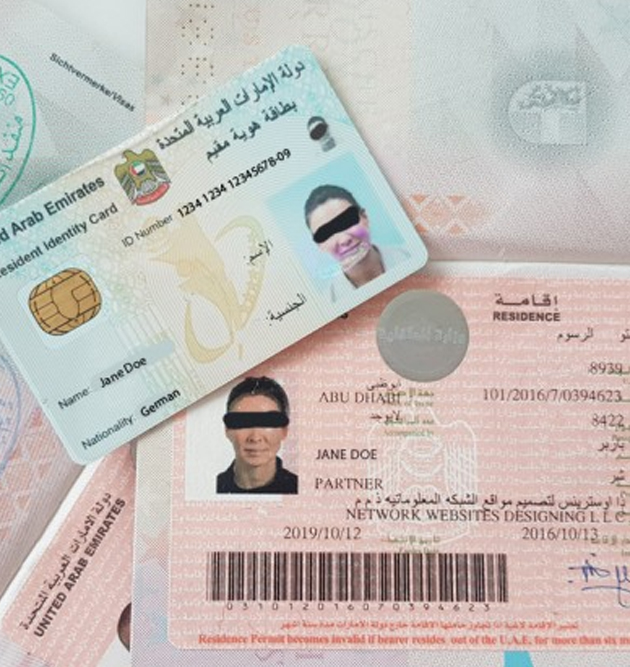
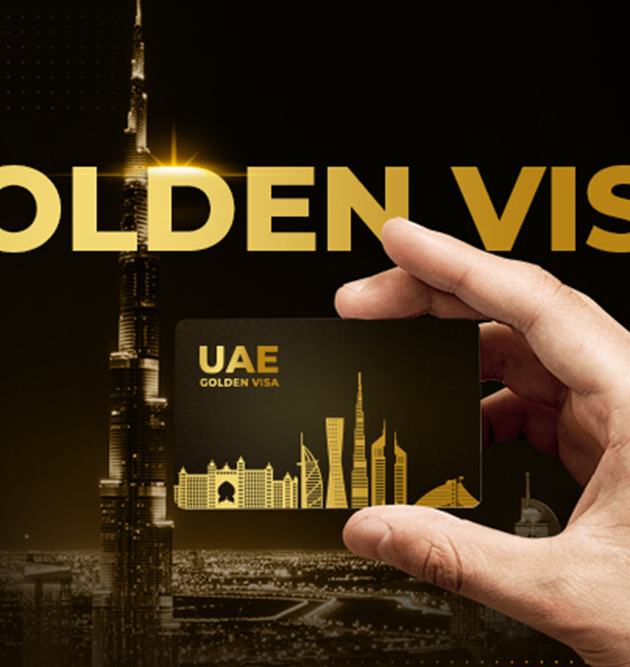
The Golden Visa is a special type of residency visa program offered by several countries to attract foreign investors, entrepreneurs, and high-net-worth individuals.
Purpose: The Golden Visa program aims to encourage investment, stimulate economic growth, and attract talent by offering residency rights to eligible individuals and their families.
Eligibility Criteria: Each country sets its own eligibility criteria for the Golden Visa program. Typically, applicants are required to make a significant investment in the country's economy, such as purchasing real estate, making a financial investment, or starting a business. Some countries may also require applicants to meet additional criteria, such as demonstrating good character, passing background checks, or meeting minimum income thresholds.
Investment Options: The investment options available under the Golden Visa program vary depending on the country. Common investment options include purchasing real estate, investing in government bonds or funds, making a contribution to a designated investment fund, or starting a business that creates jobs or contributes to economic development.









